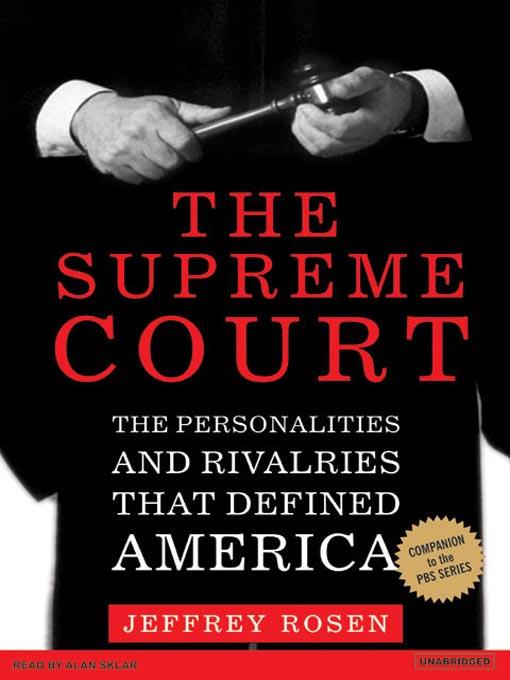
The Supreme Court
The Personalities and Rivalries That Defined America
کتاب های مرتبط
- اطلاعات
- نقد و بررسی
- دیدگاه کاربران
نقد و بررسی

According to Rosen, "judicial temperament," not political philosophy, determines a justice's success or failure. Though not an exhaustive study, Rosen's work looks at the principal pairings on the Court, beginning with the epic battle between John Marshall and Thomas Jefferson and concluding with an analysis of the Rehnquist and Roberts Courts. Team players, like John Marshall Harlan and Hugo Black, win while William O. Douglas-style loners lose. Alan Sklar's voice is even and thoughtful. His pacing is deliberative, with good tonal range: Bill Rehnquist, thankfully, does not sound like the fiery Antonin Scalia. We never forget, however, that this is an academic examination, albeit a lively one, the purpose of which is to put into historical perspective the battles going on today. P.E.F. (c) AudioFile 2008, Portland, Maine

October 9, 2006
In his second book this year (after The Most Democratic Branch
), Rosen examines how temperament and personal style shape decision making at the U.S. Supreme Court. The author, a law professor and legal affairs editor at the New Republic,
profiles four pairs of contrasting personalities: President Thomas Jefferson and Chief Justice John Marshall; Justices Oliver Wendell Holmes and John Marshall Harlan; Justices William O. Douglas and Hugo Black; and finally Justice Antonin Scalia and Chief Justice William Rehnquist. Jefferson, Holmes, Douglas and Scalia are Rosen's exemplars of judicially counterproductive temperaments: they are ideologues, too invested in promoting the purity of their ideas to exert long-term influence on constitutional law. Far more persuasive for Rosen are Marshall, Harlan, Black and Rehnquist, distinguished by collegiality, willingness to compromise and subordinate their own agendas to the prestige of the Court. Most of the book consists of anecdotes about these eight judges, along with summaries of their most celebrated decisions and brief but perceptive explanations of their judicial philosophies. All this is entertaining, although it dilutes the book's stated focus on judicial temperament. Considering today's Court, Rosen believes Chief Justice Roberts will display a successful talent for consensus-building. As Rosen is well aware, a lot rides on the accuracy of this prediction.

























دیدگاه کاربران